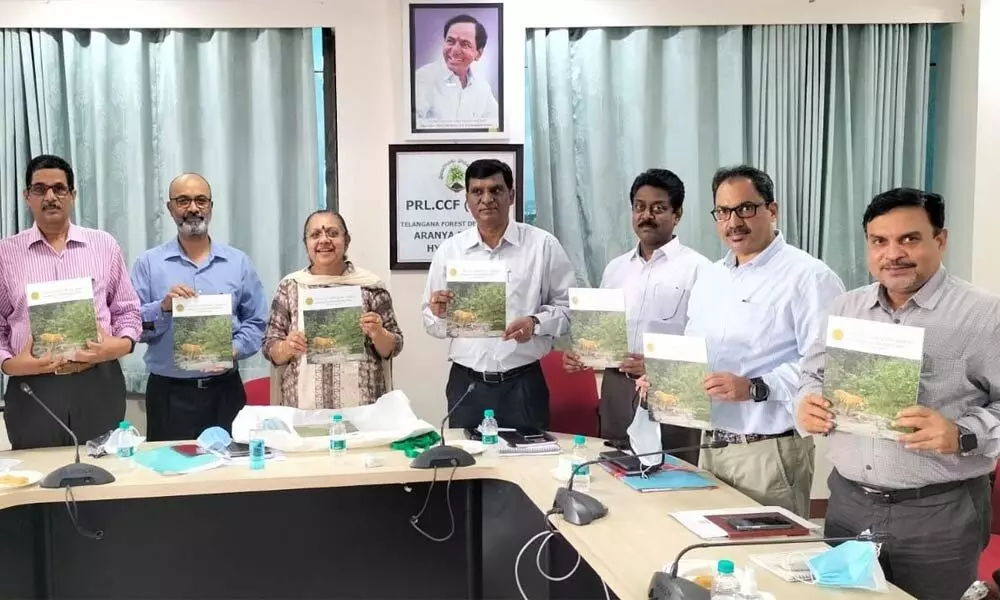Telangana: 14 tigers, 43 wild animal species recorded by census

PCCF R Sobha releases annual wildlife census report of Amrabad Tiger Reserve
PCCF R Sobha releases annual wildlife census report of Amrabad Tiger Reserve
Hyderabad: The Amrabad Tiger Reserve (ATR) now has the highest tiger population in Telangana. Releasing the annual census report of wildlife here on Friday, Principal Chief Conservator of Forests (PCCF) R Sobha said that 14 tigers were identified in the area. Similarly 43 kinds of wildlife were also observed.
She released the report along with senior department officers R M Dobrial, PCCF (SF), Lokesh Jaiswal, PCCF (Campa), Swargam Srinivas, PCCF (Admin&Vig), Siddananad Kukeratty, Additional PCCFs ), Siddananad Kukeratty (production), MC Pargaien(development), Vinay Kumar(IT), A K Sinha (STC) at Aranya Bhavan.
She said that the phase-IV monitoring and estimation being conducted across the country will give an idea to the Protected Area Managers (PAMs), how the Prey- Predator Densities (PPDs) are there in the protected area. Also, places in protected areas are more with prey densities and which are the areas where tiger movements are more. Besides, areas are disturbed and require management intervention. The Phase -IV monitoring (Annual) is conducted in identified areas of the Tiger Reserve.
During the 2019 Phase -IV census, the department could capture only 12 identified Tigers. During the 2020-21 monitoring conducted in parts of the core area could capture 14 tigers. The same has been compared with the existing tiger database of the ATR.
Once in four years, the entire tiger reserve, core and buffer areas will be covered with cameras to capture the total population. More individual tigers could be recorded. In the line transect exercise, the PCCF said, the population density of ungulates is estimated.
Accordingly, the spotted deer along with wild pig occupied the first place with 2.4 individuals/sqkm, followed by sambar with 1.65 individuals/sqkm and nilagai with 1.41 individuals/sqkm followed by common langur with 1.37 nos/ sqkm.
This year, a water hole census was also conducted in the tiger reserve, The results showed that early morning hours and evening hours were preferred timings by ungulates for drinking water. A total of 43 wild animal species were recorded.










